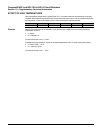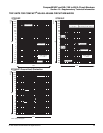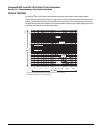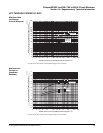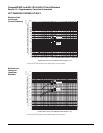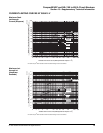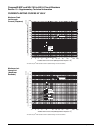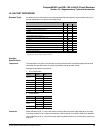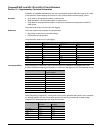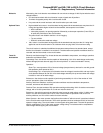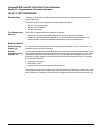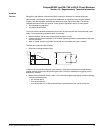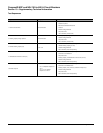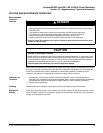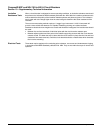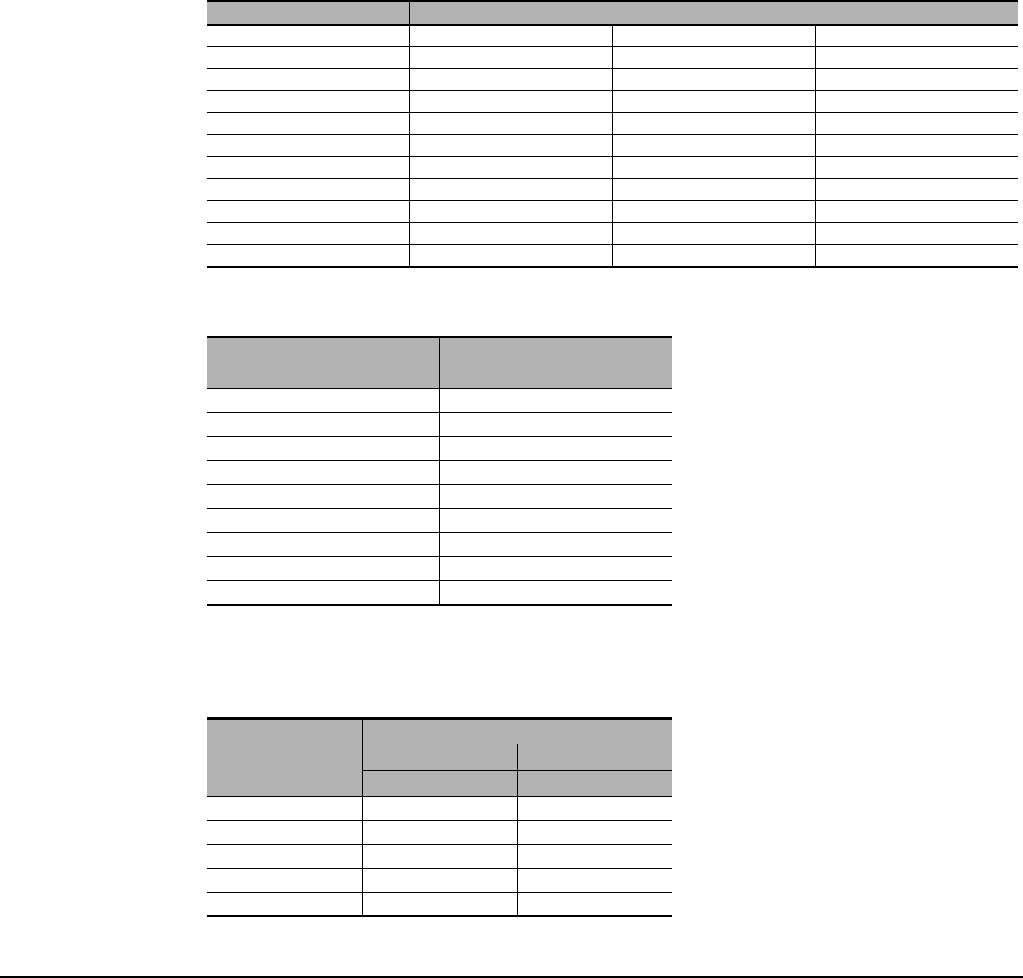
Compact® NSF and NSJ 150 to 600 A Circuit Breakers
Section 13—Supplementary Technical Information
© 1995–2003 Schneider Electric All Rights Reserved
68
Calibration of adjustable instantaneous trip—the circuit breaker must trip within the range of 80–120%
of the maximum marked tripping current and 75–125% of the minimum marked tripping current.
Overload
• Up to 1600 A—50 operations at 600% of rated current
• 2000 and 2500 A—25 operations at 600% of rated current
• 3000–6000 A—three operations at 600% of rated current followed by 25 operations at 200% of
rated current
The power factor shall be from to 0.45–0.50 lagging.
Endurance The circuit breaker must complete an endurance test:
• Operations at rated current and rated voltage
• Followed by no load operation.
The power factor shall be 0.75–0.80 lagging.
Interrupting Ability Interrupting ability (Y sequence)—after endurance tests and calibrations are repeated, the circuit
breaker completes an opening (O) followed by a close-open operation (O-t-CO), with specified current.
Interrupting ability (Z sequence)—a three-pole circuit breaker rated 240, 480 or 600 V has to complete
an opening operation (O) and a close-open operation (O-and-CO) on each pole, at rated voltage,
followed by an opening operation (O) using all three poles.
Frame Size Number of Cycles of Operations
With Current Without Current Total
100 A 6,000 4,000 10,000
225 A 4,000 4,000 8,000
400 A 1,000 5,000 6,000
600 A 1,000 5,000 6,000
800 A 500 3,000 3,500
1200 A 500 2,000 2,500
1600 A 500 2,000 2,500
2000 A 500 2,000 2,500
2500 A 500 2,000 2,500
3000 A 400 1,100 1,500
Frame Rating RMS Sym. Amperes
(3-pole O-and-CO)
100 A ① 3,000
225 A 3,000
400 A 5,000
600 A 6,000
800 A 10,000
1200 A 14,000
1600 A 20,000
2000 A 25,000
3000 A 35,000
① Above 250 V
Frame rating RMS Sym. Amperes
Each Pole Common
O-and-CO O
100 to 800 A 8,660 10,000
1000 to 1200 A 12,120 14,000
1600 A 14,000 20,000
2000 A 14,000 25,000
3000 A 25,000 35,000



